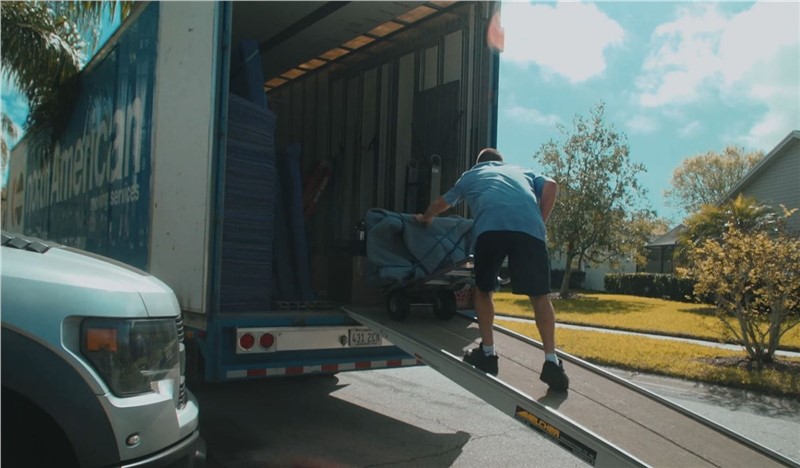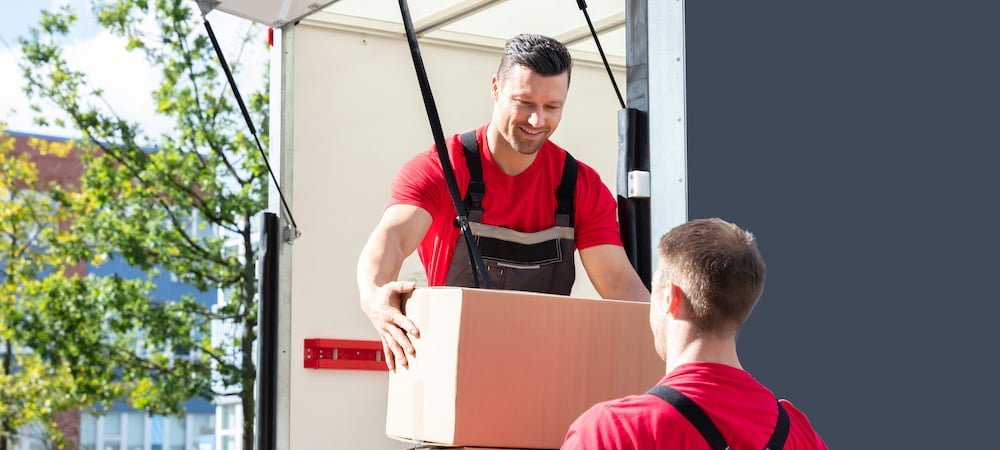Comprehending the Inclusions of moving and Freight Forwarding in the Globe of International and domestic Delivery
Guiding with the intricacies of moving and Freight forwarding can be difficult. Both processes include unique treatments and demands that are vital for effective transport. Recognizing the distinctions in logistics, documents, and threat monitoring is crucial for services and people alike. This expertise can greatly impact the efficiency and safety of shipments. Lots of are not aware of the details parts that affect the total experience and end results. What aspects should one think about to ensure a smooth transition?
The Fundamentals of moving and Freight Forwarding
moving and Freight forwarding are fundamental elements of the global logistics industry. They assist in the transfer of products and personal belongings across domestic and international borders. moving mainly entails the relocation of families or people, encompassing business and domestic needs. It normally includes packaging, loading, delivering, and unloading things at the destination. In contrast, Freight forwarding is concentrated on the delivery of items, typically in bulk, making use of various transport modes, such as land.freight, sea, or air forwarders function as intermediaries, working with logistics to guarantee prompt distribution while navigating via complex guidelines and customizeds treatments. Both processes call for careful planning, company, and communication to ensure effectiveness and reduce disruptions. Recognizing these basics is essential for any individual associated with logistics, as they lay the groundwork for advanced facets of delivery and transport management.
Key Parts of Freight Forwarding Solutions
Freight forwarding solutions incorporate numerous important elements that assure smooth transport of items. Trick duties of Freight forwarders include managing logistics, coordinating shipments, and dealing with custom-mades clearance. Furthermore, recognizing crucial delivery documents is essential for compliance and efficient movement of freight.
Freight Forwarder Responsibilities
A reliable Freight forwarder plays a vital function in coordinating the transportation of goods, ensuring that deliveries are taken care of successfully and in conformity with guidelines. Their obligations encompass various vital jobs, consisting of picking excellent transport courses, discussing Freight rates, and managing logistics. They act as middlemans in between shippers and carriers, ensuring that freight is appropriately packaged and identified for safe transportation. Furthermore, Freight forwarders track shipments, providing updates to customers regarding the condition and expected delivery times. They likewise examine and manage threats related to transportation, advising insurance coverage options as required. By helping with interaction and paperwork, Freight forwarders streamline the delivery process, lowering potential hold-ups and improving total supply chain efficiency.
Delivering Paperwork Basics

Comprehending Custom-mades Clearance and Paperwork
Precise documentation is vital in the customs clearance procedure, as it assures conformity with different guidelines. A summary of customizeds policies highlights the intricacies encountered by carriers and Freight forwarders. Usual clearance difficulties can considerably affect shipment timelines and expenses, making understanding this aspect essential for reliable logistics.
Value of Accurate Documentation
Guiding with the complexities of global shipping calls for a keen understanding of customs clearance and the essential function of documentation. Exact paperwork is essential for making sure that shipments follow policies and reach their locations without hold-ups. Properly prepared records, including costs of lading, commercial billings, and packing listings, facilitate smooth communications with customizeds authorities. Errors can result in delivery delays, penalties, and even confiscation of goods. Comprehensive documentation help in monitoring shipments and resolving conflicts. Services involved in moving and Freight forwarding must prioritize careful documents techniques to navigate the intricate landscape of worldwide shipping successfully. This persistance not just streamlines operations but also improves client contentment by ensuring timely delivery.
Customs Laws Introduction
Guiding custom-mades guidelines is a vital facet of global trade that directly impacts the success of moving and Freight forwarding operations. Efficient custom-mades clearance needs an understanding of numerous guidelines, consisting of tariffs, responsibilities, and import/export limitations. Precise documentation is vital, as it assures conformity with lawful needs and facilitates the effective motion of products across borders. Secret papers usually include commercial invoices, packaging checklists, and expenses of lading, which offer comprehensive information concerning the delivery. Additionally, customs brokers play a crucial duty in guiding complicated regulations, acting as middlemans in between personalizeds and shippers authorities. By maintaining detailed understanding of customizeds procedures, organizations can considerably reduce hold-ups and reduce costs linked with international moving worldwide shipping.
Typical Clearance Challenges
Numerous difficulties can occur throughout the custom-mades clearance process, usually complicating the activity of products throughout borders. One substantial problem is insufficient paperwork, which can lead to delays and charges. Importers and merchants must ensure all required documentation, such as invoices, packaging lists, and certificates of beginning, is accurate and complete. Additionally, inconsistencies in evaluation can set off examination from customs authorities, leading to extra obligations or evaluations. Language obstacles might also position difficulties, as miscommunication can bring about misunderstandings concerning policies. Changes in customs policies can produce confusion, requiring continuous caution by carriers. Eventually, getting rid of these clearance tests calls for thorough preparation and a clear understanding of customs requirements to help with smooth international transactions.
Packaging and Labeling Needs
Frequently overlooked, product packaging and labeling needs play a crucial function in the shipping process, ensuring that items are secured and quickly identifiable throughout their trip (domestic shipping). Proper product packaging safeguards products from damage throughout transportation, while likewise facilitating reliable handling and storage space. Utilizing appropriate products, such as bubble wrap, foam, or sturdy boxes, can protect against damage and loss.Labeling is similarly critical. Precise and clear labels communicate important information, including the location, dealing with guidelines, and components. Tags need to follow laws particular to international and residential delivery, which may consist of dangerous products identification or custom-mades declarations.Moreover, standardized labeling methods streamline the tracking process and boost general logistics performance. By sticking to product packaging and labeling requirements, organizations minimize the danger of hold-ups, damage, or misdelivery. Eventually, these techniques contribute considerably to the success of moving and Freight forwarding procedures, ensuring a smooth delivery experience for all parties included
Tracking Deliveries: Importance and Techniques
Reliable packaging and labeling established the foundation for successful delivery management, however tracking shipments is equally necessary in the shipping process. Shipment monitoring gives real-time visibility, which aids consumers and businesses keep track of the progression of their goods. This transparency enhances client satisfaction, because customers can remain educated about delivery timelines and any type of prospective delays.Several approaches facilitate efficient monitoring. Barcode scanning is an usual strategy, utilizing distinct identifiers to keep an eye on plans throughout their trip. In addition, general practitioner modern technology makes it possible for specific place monitoring, permitting prompt updates and boosted logistics monitoring. Lots of delivery business now offer electronic systems and mobile applications that supply individuals with simple access to tracking information.The significance of shipment monitoring can not be overemphasized; it lessens the risk of lost or harmed products, improves operational performance, and cultivates depend on between recipients and shippers. Consequently, incorporating efficient tracking methods is vital for successful residential and global delivery procedures.
Insurance policy Options for Your Product

Protecting insurance coverage for goods en route is a crucial consideration for individuals and organizations alike. Insurance policy choices differ based on the kind of delivery, worth of products, and specific dangers entailed. Common kinds include provider responsibility, which covers loss or damage while in transportation, and full-value insurance coverage, giving extensive insurance coverage for the total value of the goods.Shippers might also think about aquatic insurance for worldwide deliveries, safeguarding versus threats related to sea transport. It is important to evaluate the certain demands of the shipment and evaluate the terms of any kind of policy.Furthermore, understanding exclusions and restrictions is essential to avoid potential spaces in protection. Carriers need to engage with insurance coverage specialists to explore tailored services that fit their one-of-a-kind situations. Ultimately, spending in the appropriate insurance can reduce economic threats and provide satisfaction during the shipping process.
Selecting the Right moving and Freight Forwarding Solution
When picking a relocating and Freight forwarding solution, it is vital for businesses and people to very carefully examine their certain demands and top priorities. Aspects such as the volume of products, destination, and timeline play a significant role in this decision-making procedure. Looking into numerous carriers is suggested; contrasting their services, pricing, and customer testimonials can disclose beneficial insights.Additionally, it is essential to consider the experience and experience of the company in dealing with particular kinds of freight, particularly for international deliveries that may involve customs clearance. Openness in prices, including any kind of covert fees, should likewise be scrutinized.Furthermore, assessing the level of consumer support supplied is necessary, as timely interaction can alleviate issues throughout transportation (shipping overseas). Finally, verifying the accessibility of insurance policy choices assures that products are safeguarded throughout the delivery process. By taking these organizations, steps and individuals can make informed options that straighten with their logistics demands
Regularly Asked Inquiries
What Kinds Of Goods Can Be Shipped Globally?

How Do Delivery Expenses Vary Between Various Service Providers?
Delivering expenses vary substantially between carriers as a result of aspects such as service rate, freight type, range, and extra services supplied. Each provider's pricing version shows these variables, affecting general shipping expenditures for customers.
Can I Ship Hazardous Products or Perishables?
Shipping hazardous products and perishables is subject to rigorous guidelines. Carriers usually need specific product packaging, labeling, and documentation. Carriers should assure compliance with international and regional laws to prevent penalties and ensure safe transport.
What Should I Do if My Delivery Is Delayed?
When encountered with a shipment hold-up, one ought to initially get in touch with the service provider for updates. Then, assess any alerts received, examine alternative options, and maintain all parties notified concerning the situation to lessen disruptions.
Are There Weight Boundary for Delivery Containers?
Weight limits for shipping containers vary depending upon variables like container size and delivery regulations. Normally, basic containers have a maximum gross weight of around 30,000 to 32,000 kgs to assure secure transport and handling. In comparison, Freight forwarding is concentrated on the shipment of goods, frequently in bulk, utilizing different transport settings, such as land.freight, sea, or air forwarders act as intermediaries, coordinating logistics to guarantee timely distribution while steering via facility laws and personalizeds treatments. Trick duties of Freight forwarders consist of handling logistics, collaborating shipments, and dealing with customizeds clearance. A reputable Freight forwarder plays a necessary function in collaborating the transportation of goods, making certain that deliveries are managed effectively and in compliance with regulations. Reliable product packaging and labeling set the foundation for effective delivery administration, but tracking shipments is just as crucial in the delivery procedure. Numerous delivery firms now offer electronic platforms and mobile applications that provide customers with simple access to tracking information.The importance of delivery tracking can not be overemphasized; it decreases the risk of lost or harmed products, enhances functional efficiency, and cultivates depend on between receivers and shippers.
Comments on “Why documentation right is vital in shipping overseas”